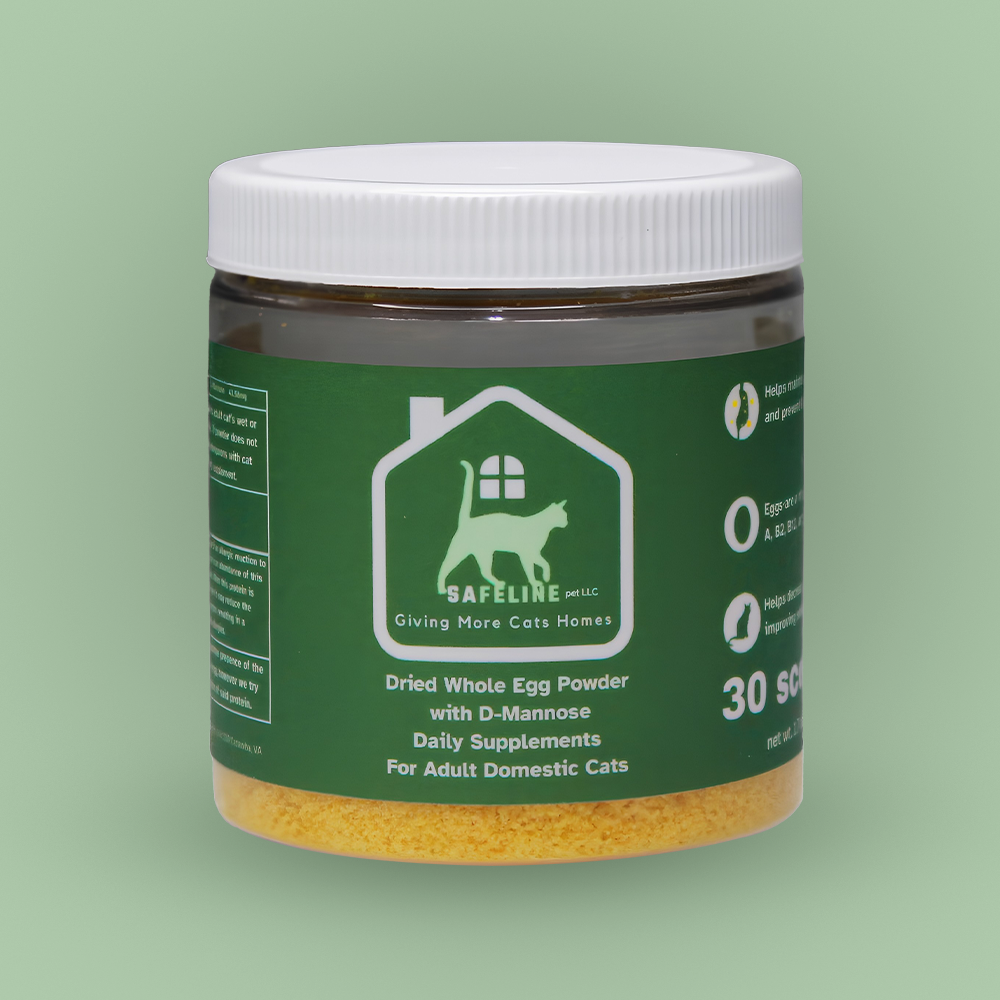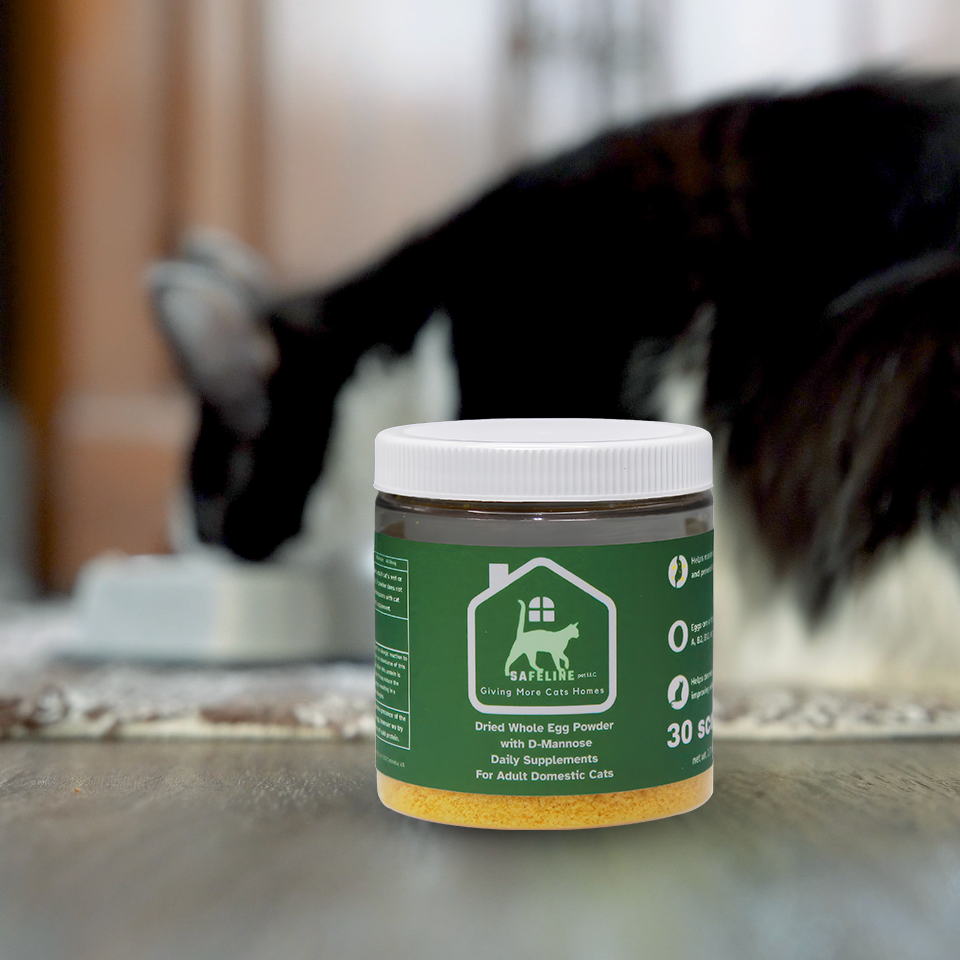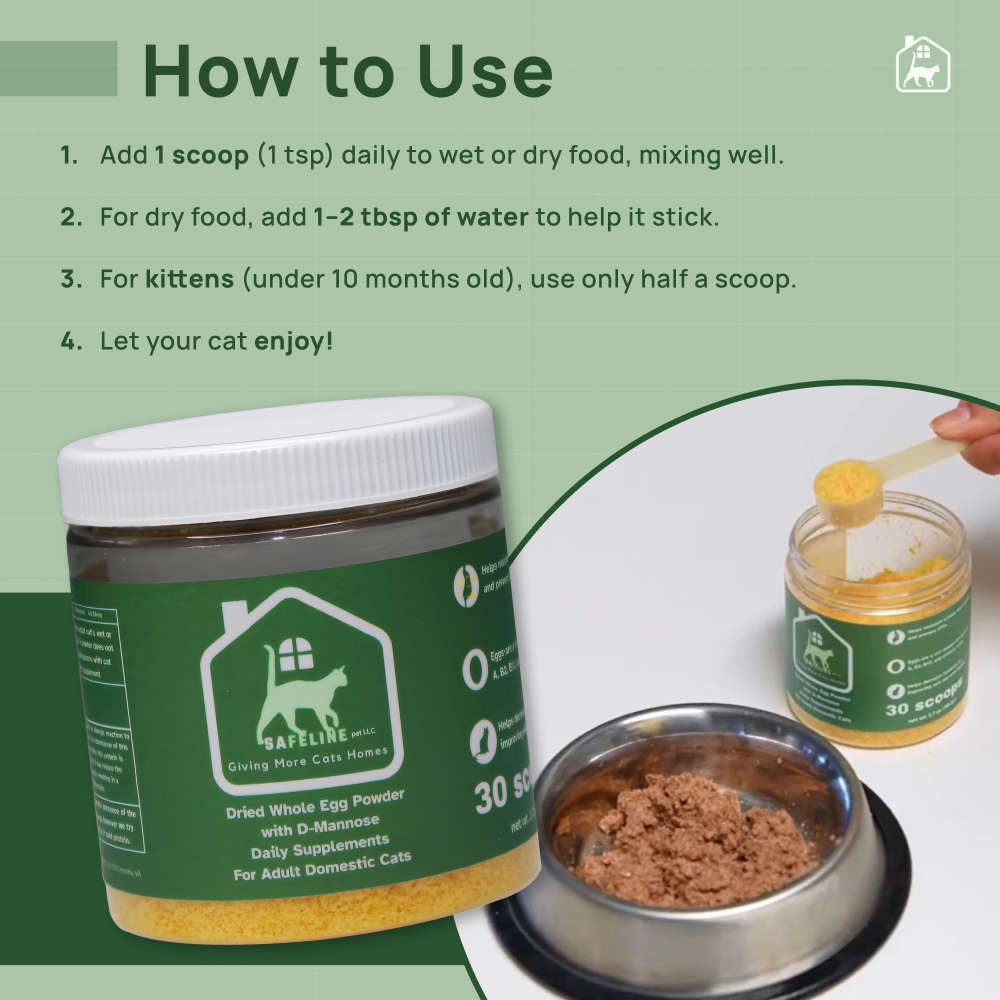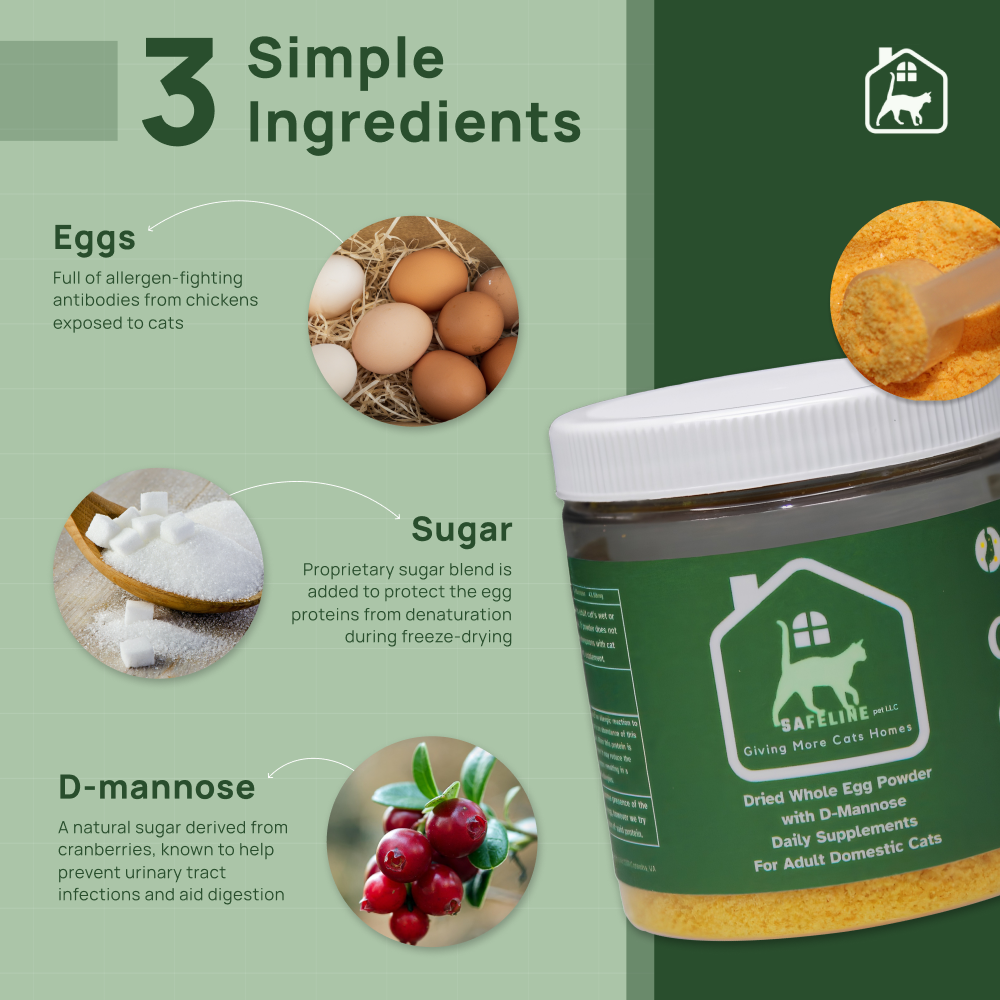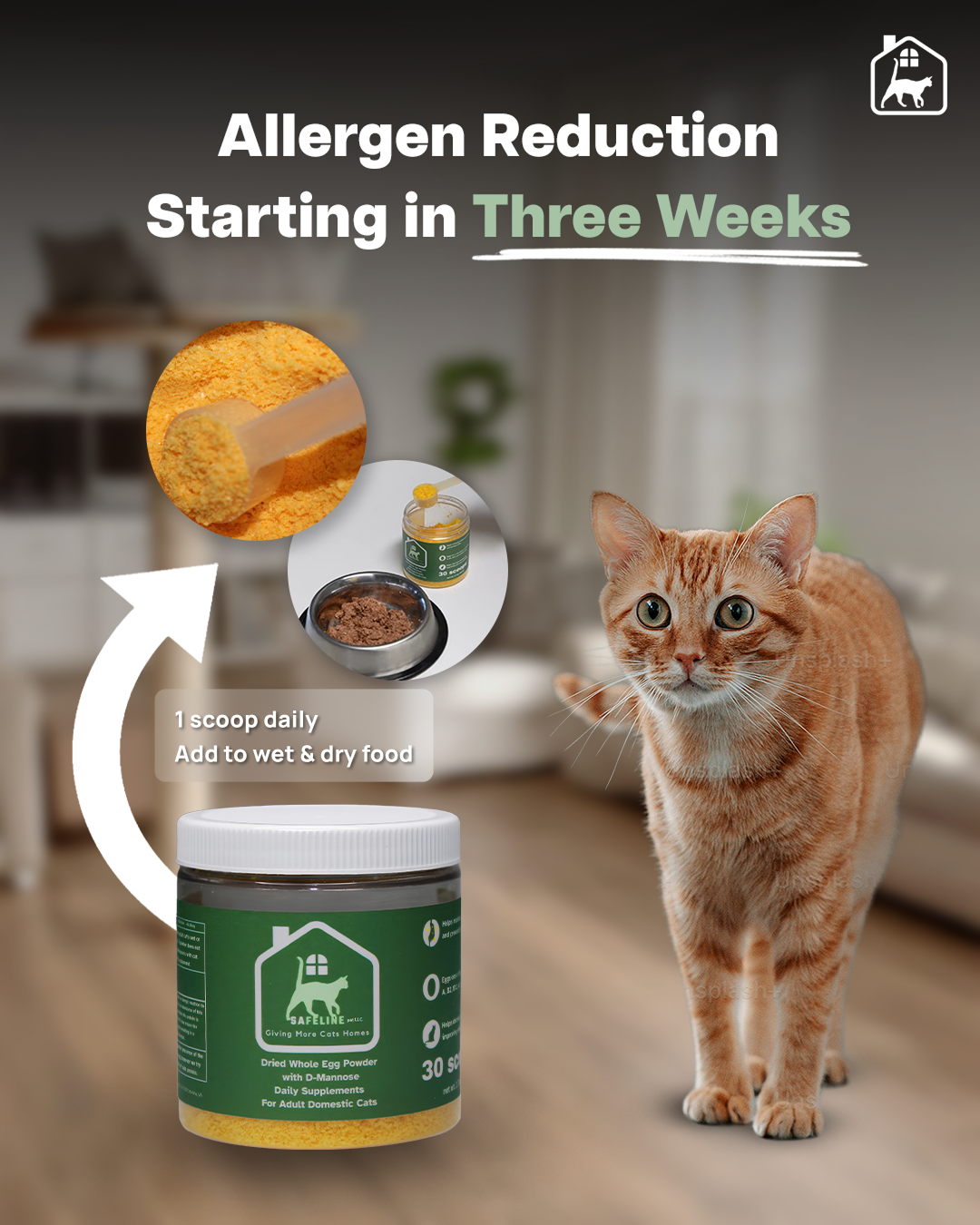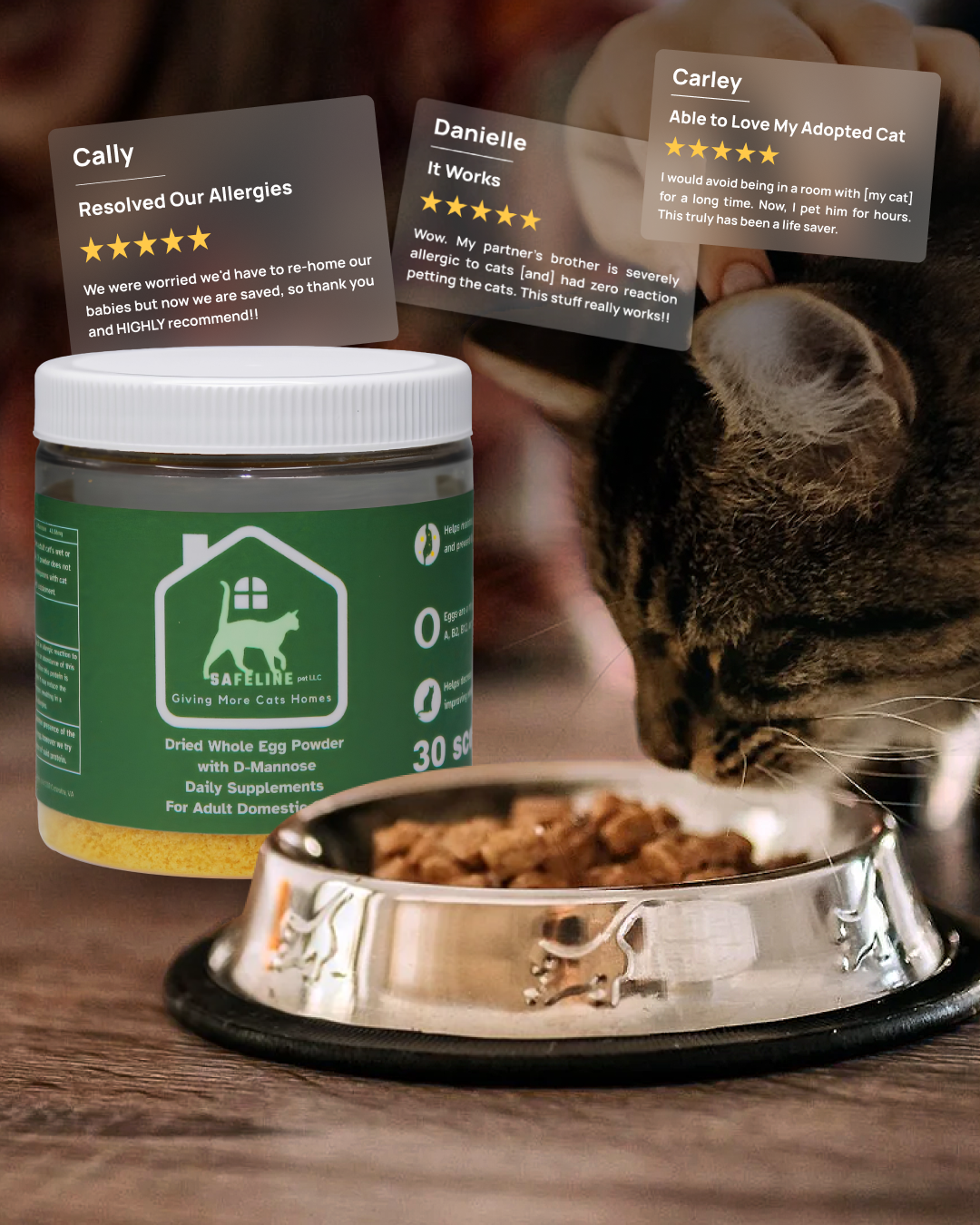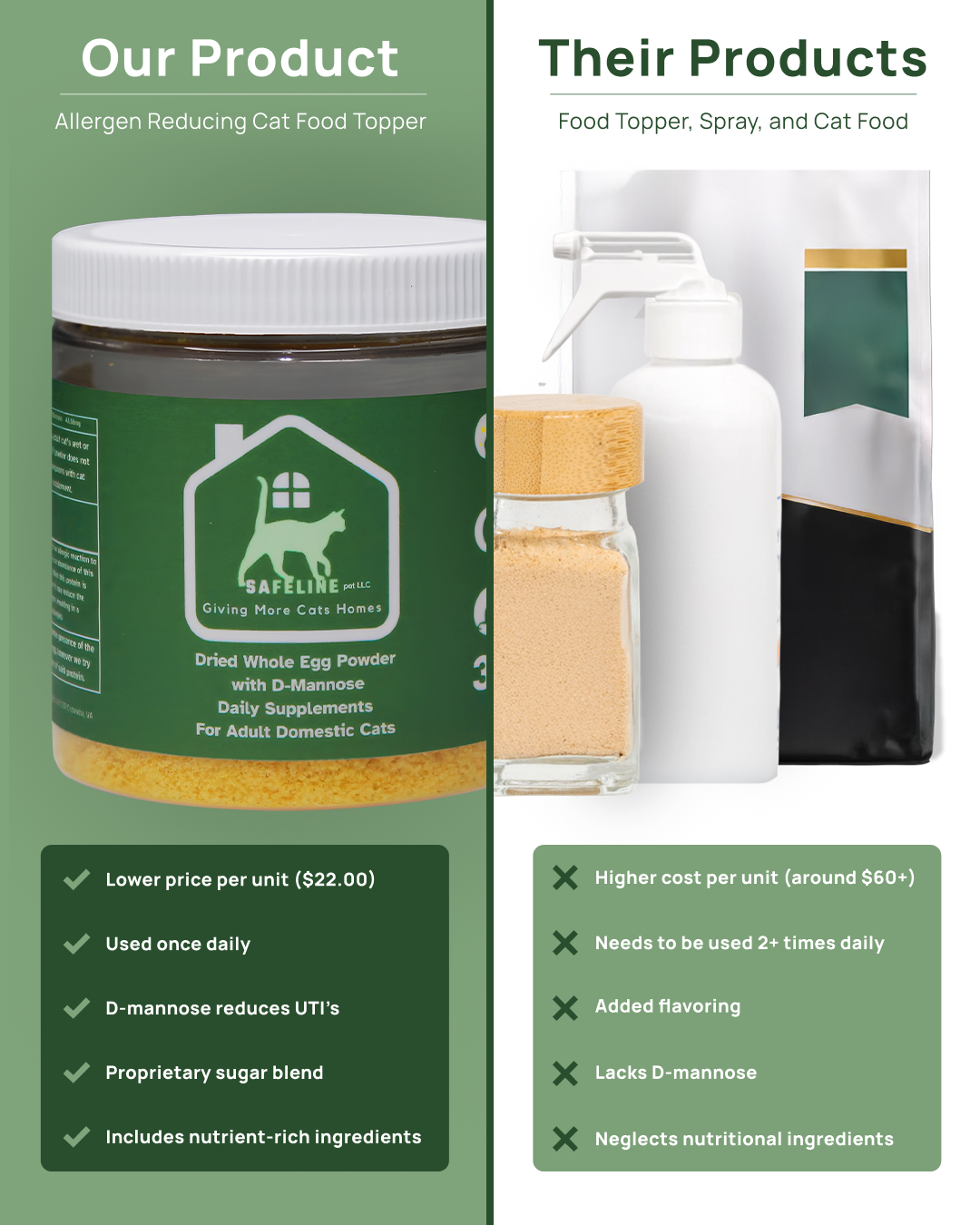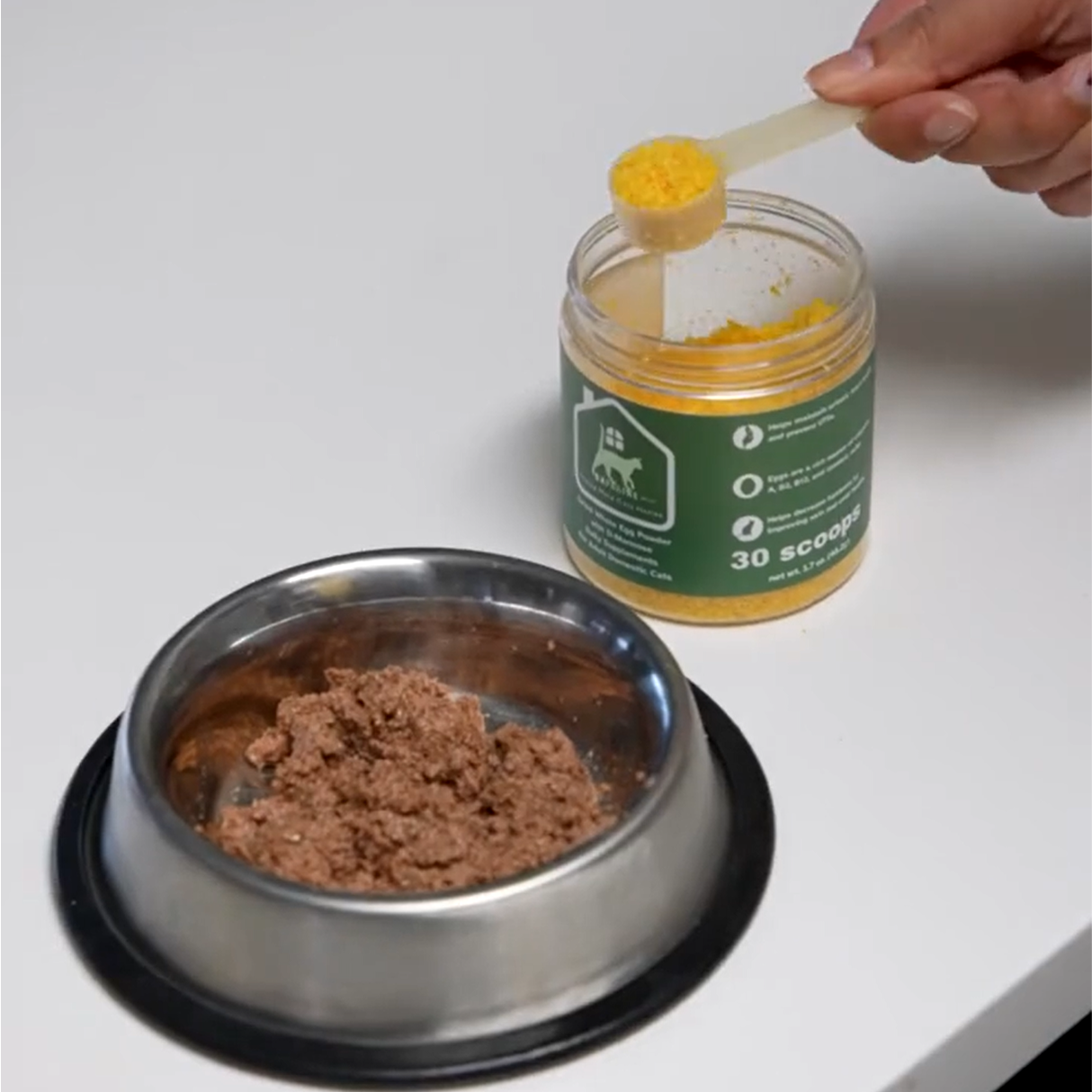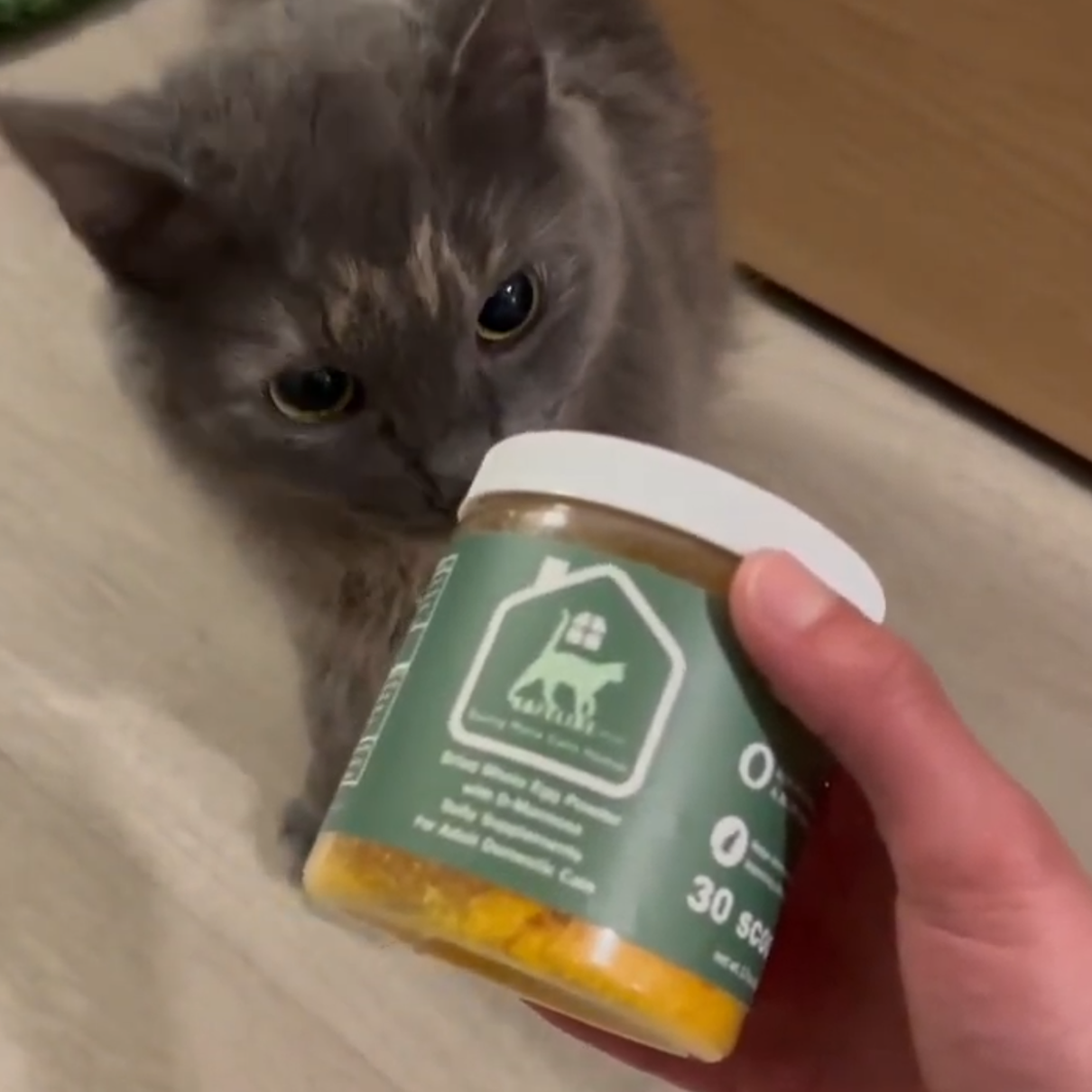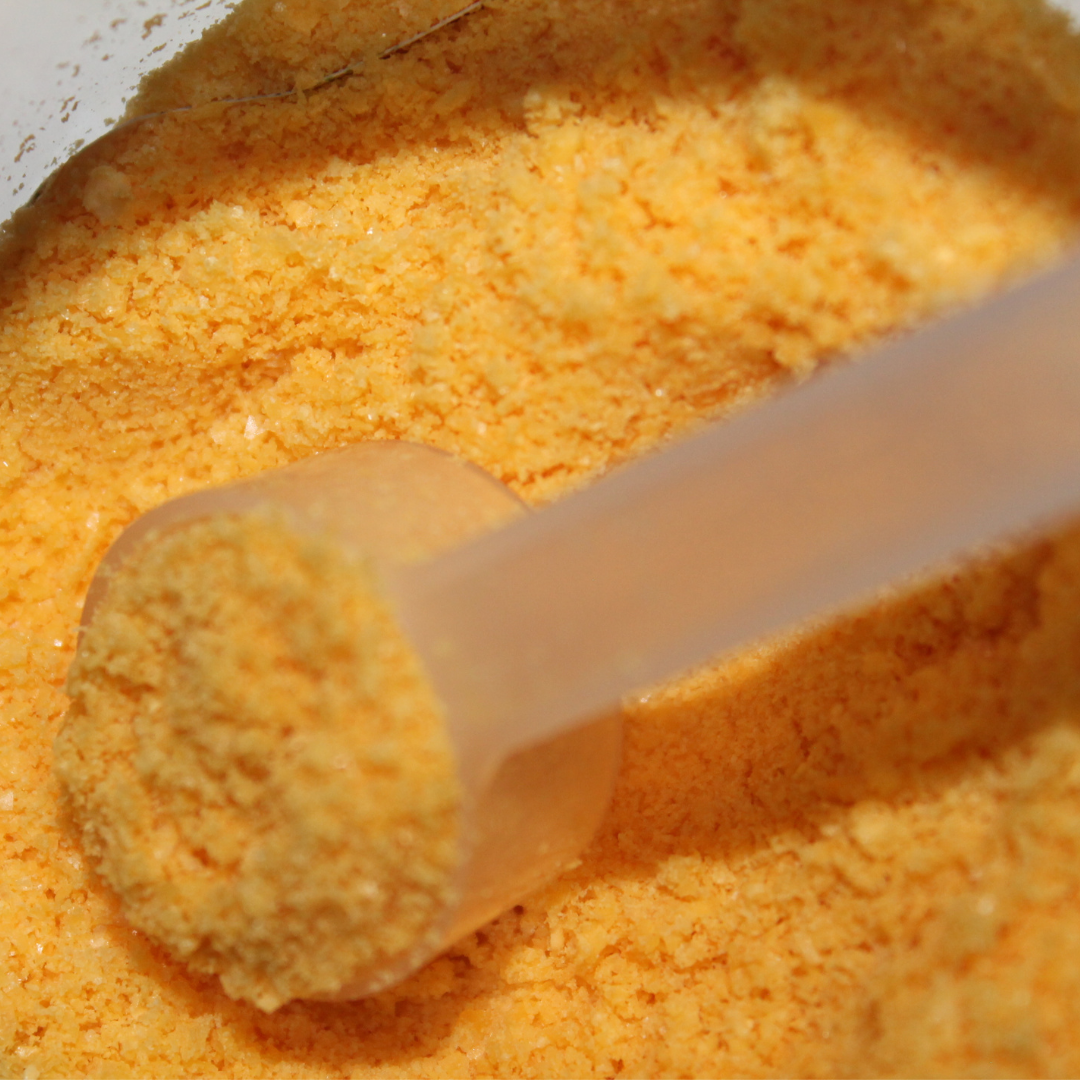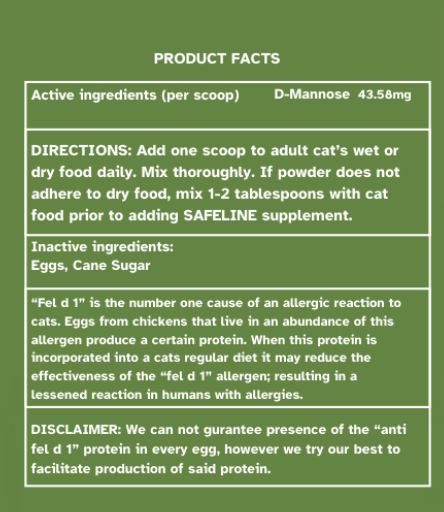The Science Behind Reducing Allergens in Cats
Research shows that eggs from chickens exposed to domestic shorthair cats can reduce Fel d1 allergens. Fel d1 is the major allergen found in cats, responsible for allergic reactions in up to 95% of people with cat allergies.
What Is Fel d1?
Fel d1 is the primary allergen found in cats. This protein is present in their saliva and fur, triggering allergic reactions in sensitive individuals.
How Our Product Reduces Allergens
Chickens exposed to Fel d1 produce an antibody called "IGY" that attaches to the Fel d1 protein, reducing its effectiveness as an allergen. This results in lower allergen levels in cat fur and saliva.
Our Commitment to Ethical Practices
We ensure chickens are safely exposed to Fel d1, without harm. Through supervised interactions between cats and chickens, we maximize the production of anti-Fel d1 antibodies, all while keeping both animals safe during the process.

More Than Just Allergy Relief
Our product provides more than just allergen reduction:
- Rich in protein, Linoleic acid, Vitamins B2, B12, and water-soluble Vitamin A.
- Helps strengthen skin and coat health.
- A nutritious, cost-effective, and convenient addition to your cat’s daily diet.
Still Researching, But Promising Results
While exact allergen reduction levels are still being studied, early findings are promising. Our egg-based supplement offers your cat a wealth of nutritional benefits, alongside potential allergen reduction.
Why Your Cat Will Love It
- An easy way to boost your cat’s daily nutrition.
- Potential to reduce allergens while promoting skin and coat health.
- An affordable, simple addition to your cat’s diet.
Ready to Make a Difference?
Shop now to give your cat the allergen-reducing benefits and nutritional support they deserve!
References:
Satyaraj, E., Gardner, C., Filipi, I., Cramer, K., & Sherrill, S. (2019). Reduction of active Fel d1 from cats using an antiFel d1 egg IgY antibody. Immunity, inflammation and disease, 7(2), 68–73. doi:10.1002/iid3.244
Satyaraj, E., Li, Q., Sun, P. & Sherrill, S. (2019). Anti-Fel d 1 immunoglobulin Y antibody-containing egg ingredient lowers allergen levels in cat saliva. Journal of Feline Medicine and Surgery, 21(10), 875-881. doi: 10.1177/1098612X19861218
Karlsson, M., Kollberg, H. & Larsson, A. (2004). Chicken IgY: utilizing the evolutionary difference. World’s Poultry Science Journal, 60, 341-348. doi: 10.1079/WPS200422
Schade, R., Calzado, E.G., Sarmiento, R., Chacana, P.A., Porankiewics-Asplund, J., Terzolo, H.R., (2005). Chicken egg yolk antibodies (IgY-technology): A review of progress in production and use in research and human and veterinary medicine. Alternatives to Laboratory Animals, 33(2),129-154.
Wedner, H.J., Mantia, T., Satyaraj, E., Gardner, C., Al-Hammadi, N. & Sherrill, S. Feeding cats egg product with anti-Fel d 1 antibodies decreases environmental Fel d 1 and allergic response. Manuscript in preparation.
Rahman, S., Nguyen S.V., Icatlo, F.C., Umeda, K. & Kodama Y. (2013). Oral passive IgY-based immunotherapeutics. Human Vaccines & Immunotherapeutics, 9, 1039-1048. doi: 10.4161/hv.23383


